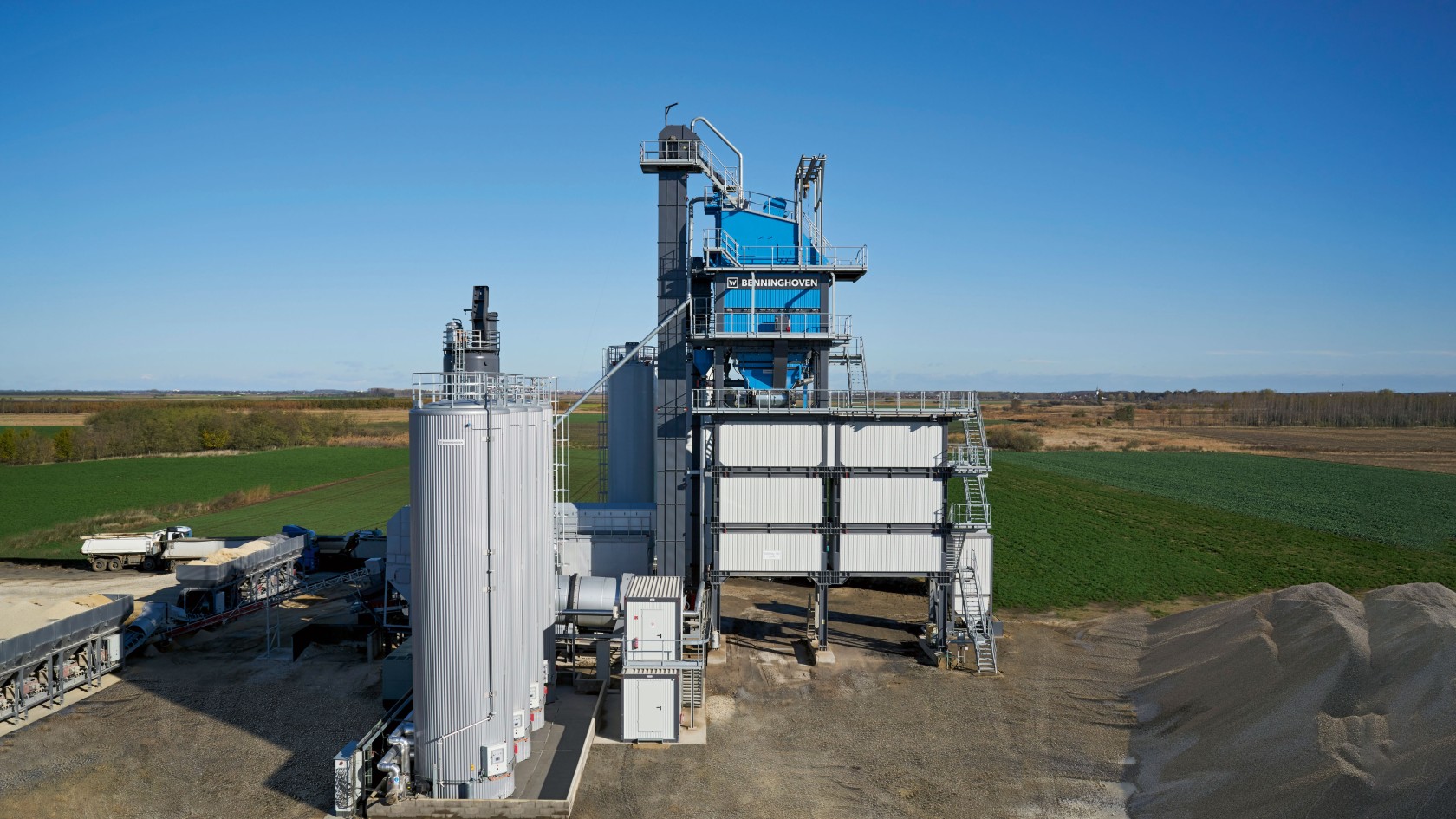How is Asphalt Produced?


A thermal mixing process is required to produce asphalt from aggregate and bitumen for road construction and an asphalt mixing plant is essential here. Whether transportable or stationary – every mixture is a winner with tailor-made solutions by Benninghoven, the specialist for asphalt mixing plants.
We generally differentiate between two types of processes in asphalt production: continuous production and discontinuous or batch production.
Ciber is the Wirtgen Group brand that specializes in continuous asphalt production and is available in Latin America, Africa, Oceania, and Southeast Asia. In the continuous process, the production cycle runs without interruption and the asphalt mixture is not produced in different batches.
In batch production, the components of the asphalt mixture are first weighed before being mixed in batches in an asphalt mixer according to a specific recipe. This process is more flexible as the recipe for the mixture can be changed for each batch. What is more, a greater mixing quality can be achieved due to the more precise quantities added and adapted mixing cycles.
In Europe, the batch production process is the most widespread type of asphalt production.
While transportable plants are usually used in areas with a less-developed infrastructure, high-performance stationary plants are normally popular in conurbations. Benninghoven provides flexible solutions for reliable and economic use and each Benninghoven plant is suitable for the production of both roller-compacted and mastic asphalt.
High-performance, stationary plants are more commonly used in conurbations. They are usually positioned at an easily accessible location, allowing for delivery to as large an area as possible while keeping delivery routes to building sites short. They are found, for example, close to motorway exits or in industrial estates in large cities. Some stationary asphalt mixing plants are located directly at mineral deposit sites such as quarries in order to minimize the cost of mineral aggregate deliveries. This type of plant requires a concrete foundation.
Transportable or semi-mobile plants are suitable for job sites which will only be operating for a specific period of time. They are generally acquired with the option of moving the plant to a different location, if required. This type of plant can be fitted with a fixed concrete foundation or a mobile steel foundation.
Asphalt mixing plants featuring transport-optimised container dimensions, type ECO. This plant is characterised by a high level of mobility and therefore optimum flexibility. It is suitable for stationary operation but can also handle fast site changes without problems. The strength of the plant lies in its ability to be transported anywhere in the world, as easily, economically and effectively as possible.
The modular design of the ECO series also allows various high-tech components to be integrated afterwards.
We can supply the right plant to suit your market requirements: Whether it’s a transportable or stationary plant, at capacities from 100 - 400 t/hour – but one thing remains consistent throughout: Benninghoven has the most cutting-edge solutions for economical, flexible and environmentally friendly asphalt production.

